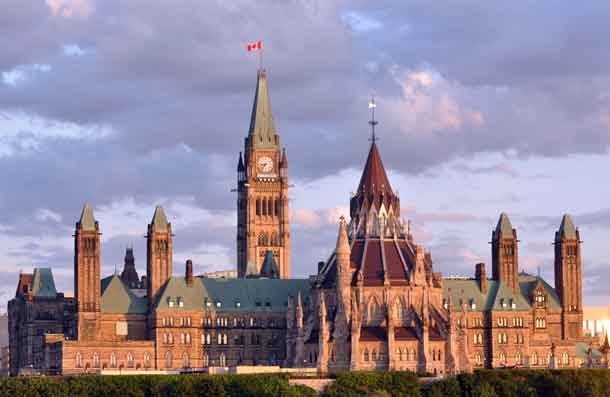Every day is a new day with new excuses from the RCMP about why access is limited
OTTAWA – A coalition of news organizations and press freedom groups, including the Canadian Association of Journalists (CAJ), plan to file a legal application seeking the court’s assistance to allow journalists substantive access to cover a demonstration against the logging of an old-growth forest currently taking place in the Fairy Creek watershed, near Port Renfrew, B.C.
In addition to the CAJ, the coalition includes Ricochet Media, The Narwhal, Capital Daily, Canada’s National Observer, the Aboriginal Peoples Television Network (APTN), Canadian Journalists for Free Expression (CJFE), The Discourse and IndigiNews.
“Over the past week, we’ve repeatedly seen the RCMP shift the goal posts on how it plans to allow journalists access in order to cover this important public interest story,” said Brent Jolly, CAJ president. “Every day is a new day with new excuses from the RCMP about why access is limited. Enough is enough.”
“The RCMP have been using broad exclusion zones to interfere with members of the media for at least eight years, across multiple provinces,” said Ethan Cox, an editor with Ricochet Media. “Legal precedent and the RCMP’s own oversight body say doing so is beyond the authority of the force, but it keeps happening. What’s at stake here is nothing less than the public’s right to know.”
On May 18, the CAJ issued a statement that called on courts to limit RCMP power when granting injunctions. Yesterday, the coalition sent a formal letter to the RCMP requesting that media be provided fair access. As of the time of publication, that letter has not been acknowledged.
The full letter sent to the RCMP reads as follows:
As representatives of working journalists in Canada, and outlets with journalists on assignment to cover the events unfolding in old-growth forests near Port Renfrew and Lake Cowichan on Vancouver Island, we are writing to express our deep concern about serious violations of press freedoms. As you know, the events taking place are important matters of interest to the public.
We have documented reports from numerous journalists who have been refused entry to the area of RCMP enforcement through the broad use of exclusion zones. When granted access, journalists have had that access restricted in ways that materially prevent them from doing their job.
The ability of journalists to access and report on matters of public interest receives strong protection under Canadian law, which recognizes that media facilitates and sustains the public exchange of information in a way that is vital to modern Canadian society and essential to the proper functioning of democracy. Injunctions, such as the one in place at Fairy Creek, are not intended to interfere with those legal rights and interests, and must not be enforced by the RCMP in such a way that unnecessarily prevents or impedes journalists exercising those rights and performing their vital function; see, for example, Re: Brake; Anderson v. Nalcor Energy, 2019 NLCA 17.
You will also be aware that the Civilian Review and Complaints Commission stated in the Chairperson-Initiated Complaint and Public Interest Investigation Into the RCMP’s Response to Anti-Shale Gas Protests in Kent County, New Brunswick (“the Kent County report”), that restrictions to protest sites and interference with the liberty of individuals should be limited and made only with specific, objectively reasonable rationales.
Given the unfolding of events over the past six days, we are compelled to demand that the RCMP immediately take steps to minimize the impact of its enforcement practices on the work of journalists at the Fairy Creek protests. Specifically, the following actions are required:
Immediately end the practice of applying exclusion zones to journalists. All members of the media must be able to freely access protest sites where events of interest to the public are unfolding. This access must not be contingent on the availability of a media liaison officer.
Journalists must be allowed to be close enough to participants in the unfolding events to record video and sound, conduct interviews and take photographs. This distance should be sufficient to avoid any accidental interference with officers performing their duties. We draw your attention to the work of police forces in cities across Canada, who routinely arrest protesters engaged in unlawful conduct without restricting media access to the area in any way.
Refrain from using physical obstructions that block the view or prevent the media from capturing audio. Do not hold up tarps around arrests, place loud generators between journalists and arrests or position officers to block cameras.
Journalists must be allowed to move freely on site, as long as they do not interfere with the execution of RCMP activities. This means that journalists should not be corralled or forced to move as a group or with a police escort. By forcing working journalists to be chaperoned by a police escort, the RCMP is compromising journalists’ ability to freely gather information.
The equipment of journalists must not be seized or otherwise interfered with.
You must immediately cease arresting or detaining journalists within injunction zones for asserting their right to document events.
Journalists are not participants in the protests, or advocates for the protesters against whom the injunction is being enforced. It is not our intention to interfere with police operations in lawful execution of a court order. Our role is to serve democracy by documenting activities and conveying that information to the public.
Journalism is an essential service and is, accordingly, given constitutional protection. We have no intention of interfering with your work. We ask that you allow our journalists to do their work without undue harassment or obstruction in accordance with the law. If this is not agreeable, we will be bringing an application to the B.C. Supreme Court to vary the injunction order to specifically set out these protections for the media and direct the RCMP to change its practices. We hope that is not necessary, but we have retained legal counsel in the event it is, and will proceed on two business days’ notice, as provided in the injunction order.
We look forward to hearing from you as soon as possible with substantive commitments to respect journalists’ work at the logging protests, as outlined above.
We the undersigned,
Brent Jolly, president, Canadian Association of Journalists
Ethan Cox, editor, Ricochet Media
Jimmy Thomson, managing editor, Capital Daily Victoria
Emma Gilchrist, editor-in-chief, The Narwhal
Linda Solomon Wood, editor-in-chief, Canada’s National Observer
Cheryl McKenzie, executive director – news and current affairs, APTN
Erin Millar, CEO, Discourse Media (The Discourse & IndigiNews)
Phil Tunley, president, Canadian Journalists for Free Expression
cc. Sean Hern, Q.C.
The Canadian Association of Journalists is a professional organization with over 900 members across Canada. The CAJ’s primary roles are public-interest advocacy work and professional development for its members.







